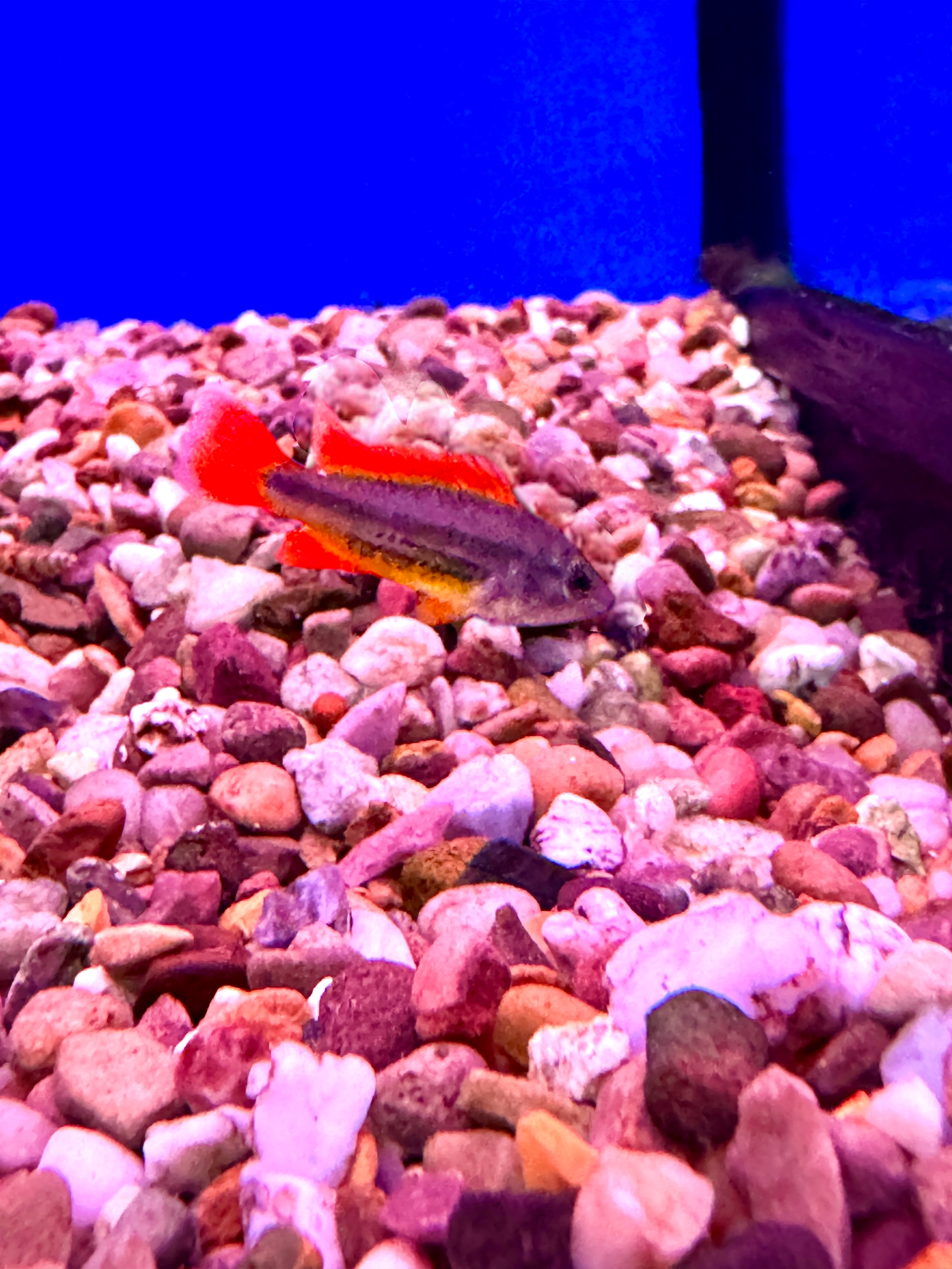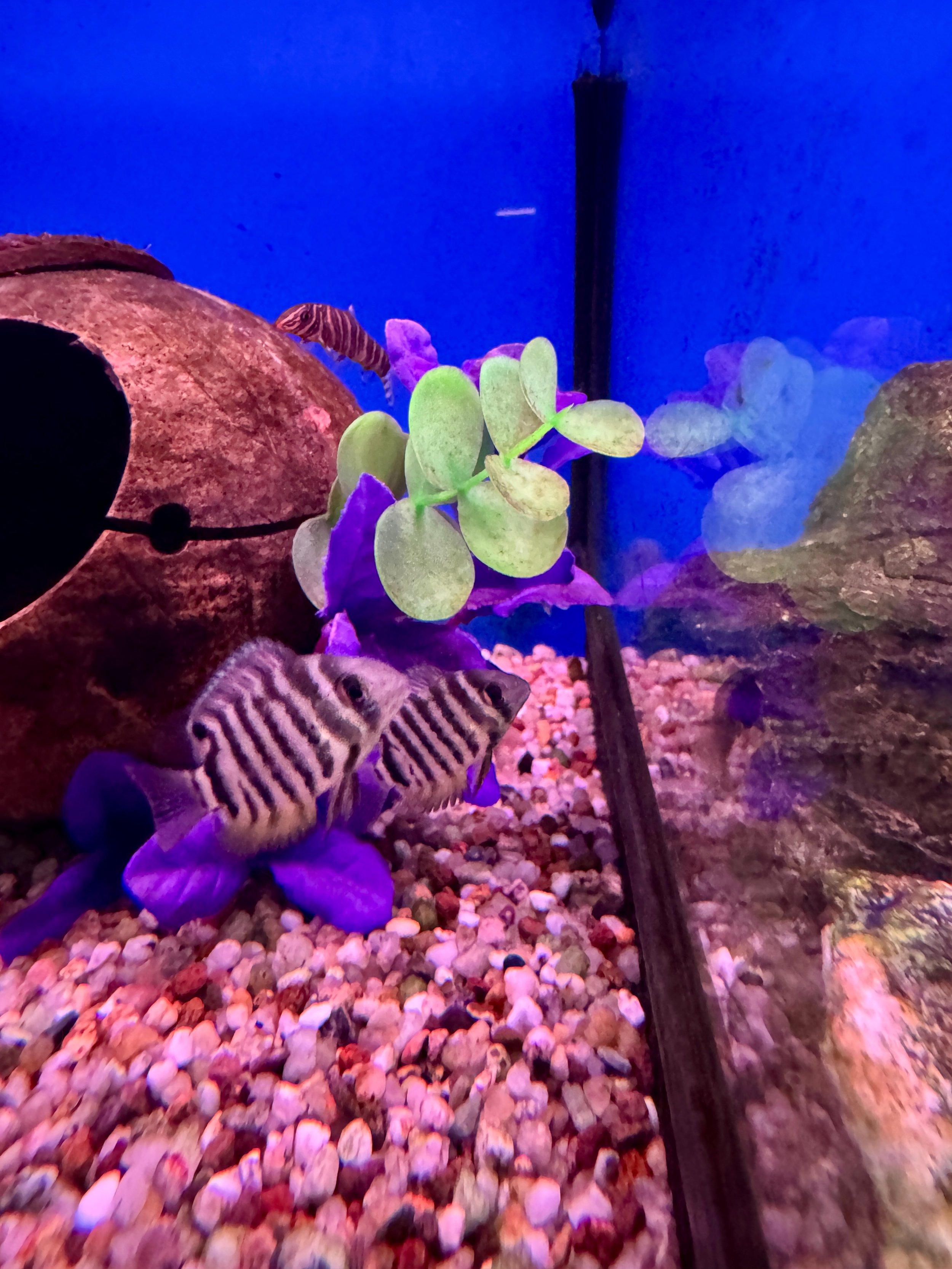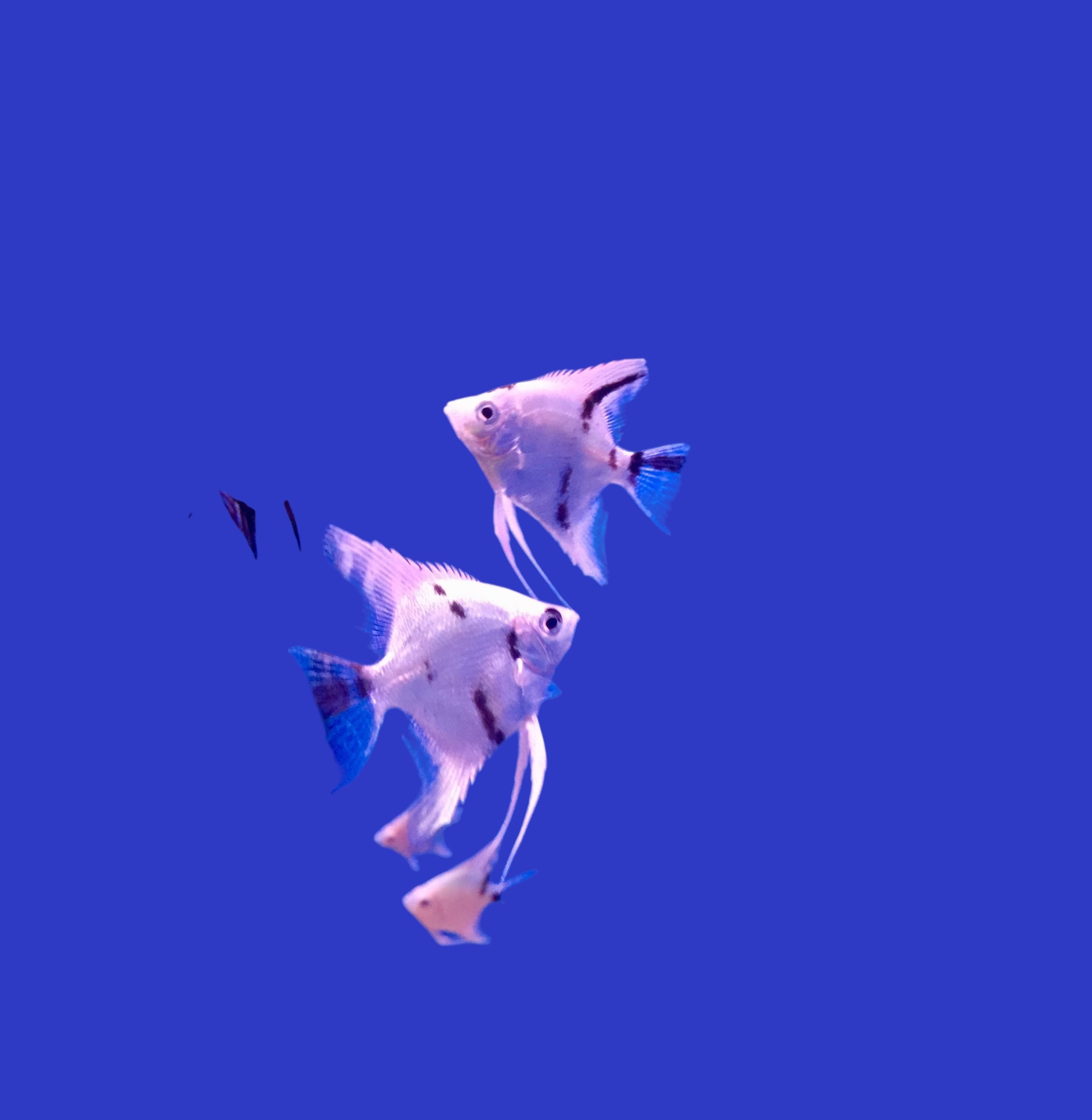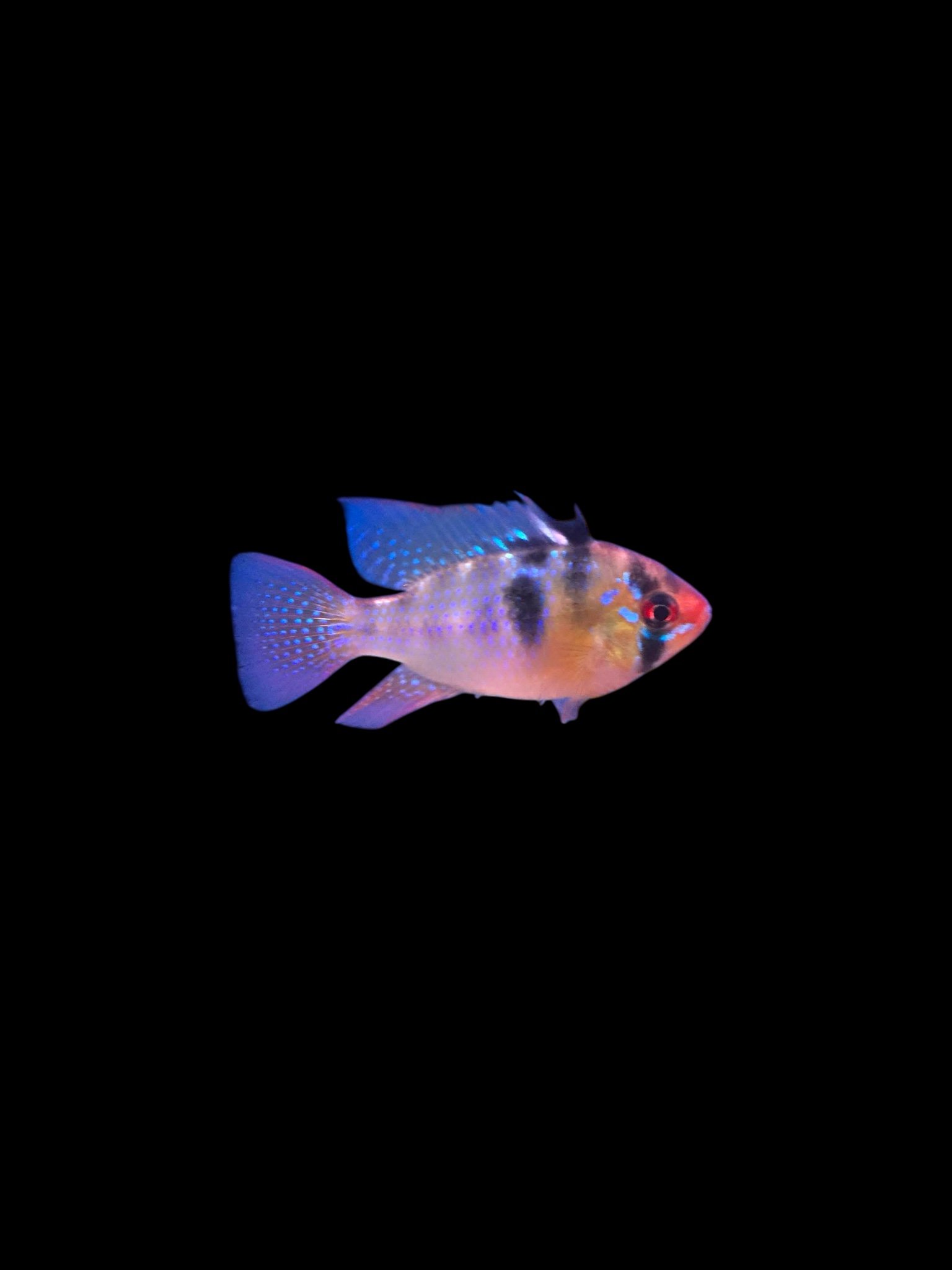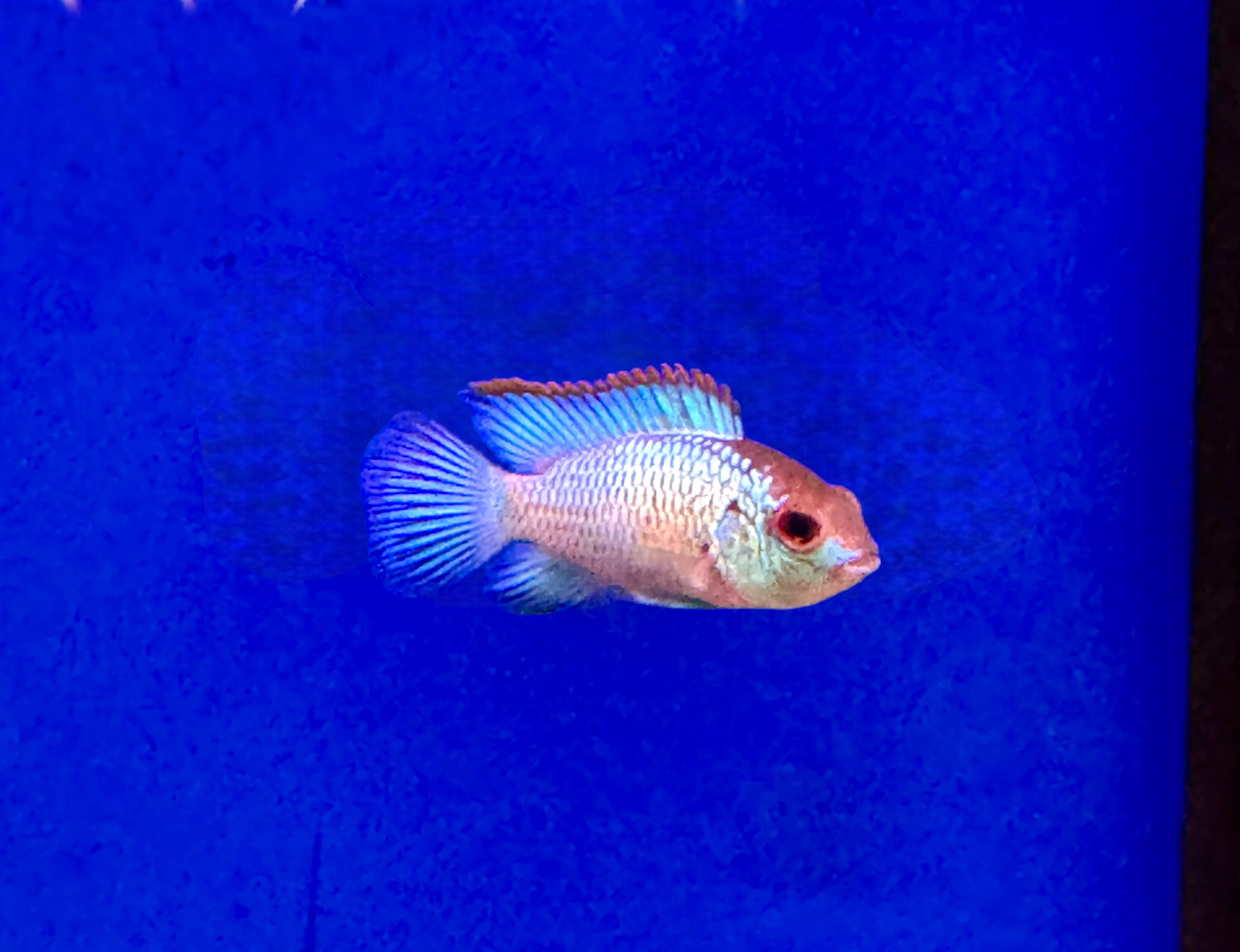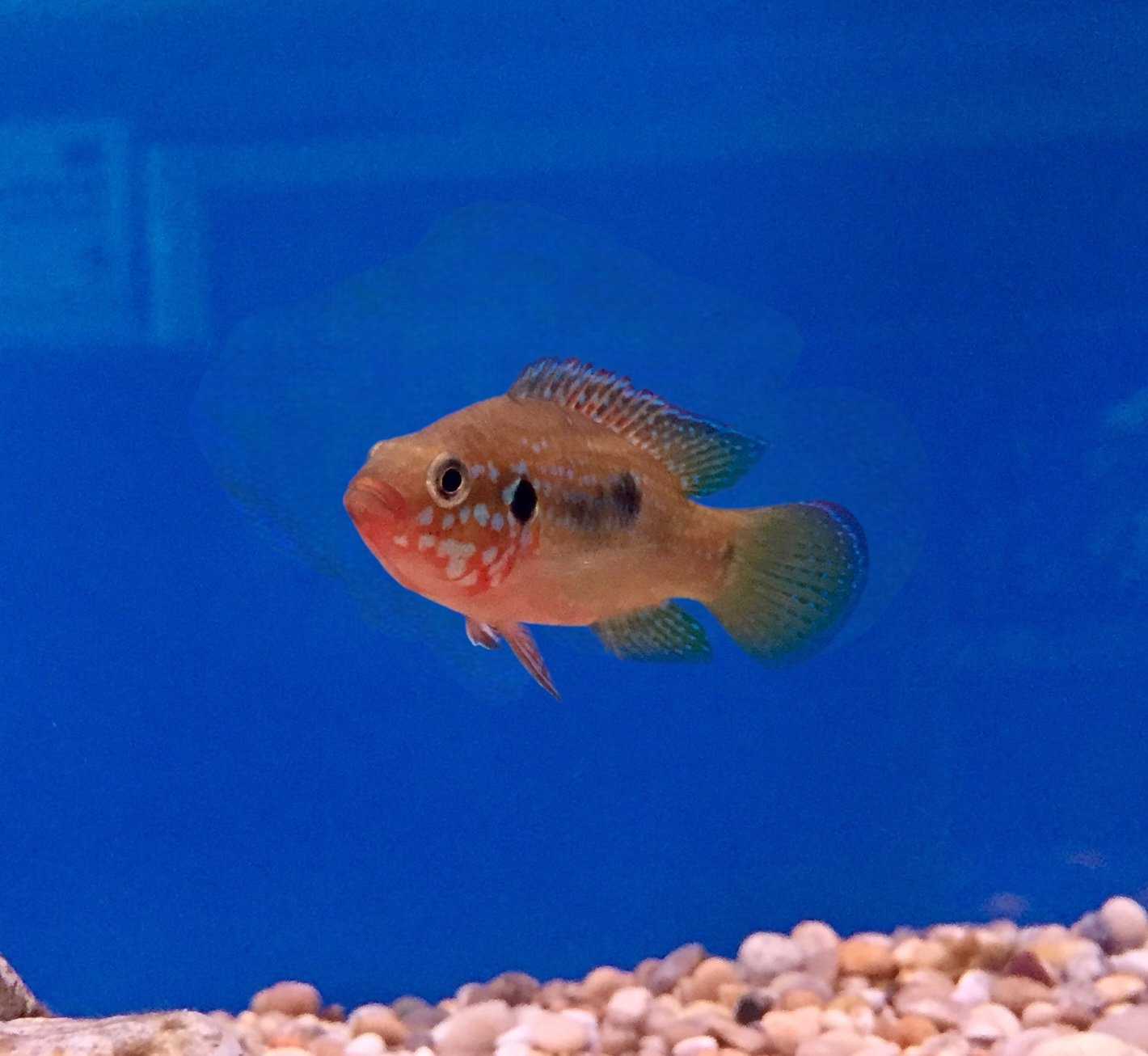Cockatoo Cichlid - Apistogramma cacatuoides
Adult Size: Males typically grow to about 2.5 to 3 inches (6 to 7.5 cm) in length, while females are slightly smaller, usually around 2 to 2.5 inches (5 to 6 cm).
Temperature Range: 75°F to 82°F (24°C to 28°C)
pH Range: 6.0 to 7.0
Compatibility: Generally peaceful and can be shy. Best kept with other peaceful, small fish that do not outcompete them for food or space.
Minimum Tank Size: 70 Litres for a single pair, but a larger tank is recommended for a group to provide more space and reduce aggression.
Originates from: South America, specifically the Amazon River basin, including parts of Peru and Brazil.
Ideal Substrate: Fine sand or small, smooth gravel. Cockatoo Cichlids are bottom-dwellers and enjoy a substrate that allows them to dig and forage, mimicking their natural habitat.
Ideal Tank Mates Suggestions:
Tetras: Species like Neon Tetras, Cardinal Tetras, and Black Skirt Tetras.
Dwarf Cichlids: Species like Apistogramma agassizi and Apistogramma borelli.
Small Barbs: Species like Cherry Barbs and Rosy Barbs.
Danios: Species like Zebra Danios and Pearl Danios.
Guppies: They can coexist with guppies, but ensure the tank is well-planted to provide hiding spots.
Loaches: Species like Kuhli Loaches and Dwarf Chain Loaches.
Shrimp: Species like Cherry Shrimp and Amano Shrimp, which can help keep the tank clean.
Fish to Avoid:
Large, Aggressive Fish: Species like Oscars, Jack Dempseys, and large cichlids can bully or harm Cockatoo Cichlids.
Fast, Nippy Fish: Species like Tiger Barbs and Serpae Tetras can stress or injure the more peaceful Cockatoo Cichlids.
Territorial Bottom-Dwellers: Species like larger Plecostomus or other aggressive catfish can outcompete Cockatoo Cichlids for space and food.

